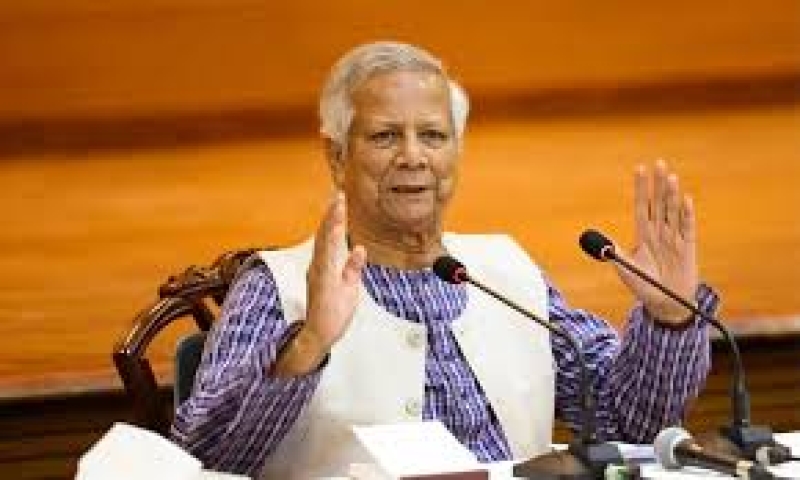- India Sees 9% Drop in Foreign Tourists as Bangladesh Visits Plunge |
- Dhaka Urges Restraint in Pakistan-Afghan War |
- Guterres Urges Action on Safe Migration Pact |
- OpenAI Raises $110B in Amazon-Led Funding |
- Puppet show enchants Children as Boi Mela comes alive on day 2 |
CA Urges Coordinated Action to End Ctg Waterlogging

Chief Adviser Professor Muhammad Yunus on Wednesday called for urgent, coordinated, and effective steps to tackle the chronic waterlogging problem in Chattogram, urging authorities to set an example for the rest of the country.
Speaking at a meeting at Chattogram Circuit House, Prof Yunus said the issue, though long-standing, symbolizes deeper urban management challenges that must be addressed.
"Chattogram must break free from waterlogging. While it may not be resolved entirely this monsoon, effective steps now can pave the way for a permanent solution," he said.
Prof Yunus stressed that past efforts would seem futile if this year’s monsoon brings no visible improvement. He urged all local bodies, including the city corporation and administration, to work in unison and demonstrate their capacity.
“We've had enough theoretical discussions. Now we need real, measurable progress. The change won’t come overnight, but it must begin now,” he added.
Encouraging media engagement, Prof Yunus requested journalists to regularly report on the issue to keep public pressure and awareness high.
Chattogram Divisional Commissioner Dr Md Ziauddin presented an overview of the current situation, while Deputy Commissioner Farida Khanom moderated the session. Officials from Chattogram City Corporation, district authorities, civil society, and service organizations shared their insights and ongoing initiatives.
Highlighting Chattogram’s historical importance and urban potential, Prof Yunus said, "This city has more capacity than most others in the country. Solving this problem here will inspire similar action elsewhere."
He emphasized that collaboration among institutions is essential and urged every department to actively contribute to lasting change.
Among others present were Liberation War Affairs Adviser Farooq-e-Azam, Energy Adviser Dr Muhammad Fouzul Kabir Khan, Education Adviser CR Abrar, Health Adviser Nurjahan Begum, Fisheries and Livestock Adviser Farida Akhter, Special Envoy Lutfey Siddiqi, BIDA Executive Chairman Chowdhury Ashik Mahmud Bin Harun, SDGs Principal Coordinator Lamiya Morshed, and the Chief Adviser’s Press Secretary Shafiqul Alam.

